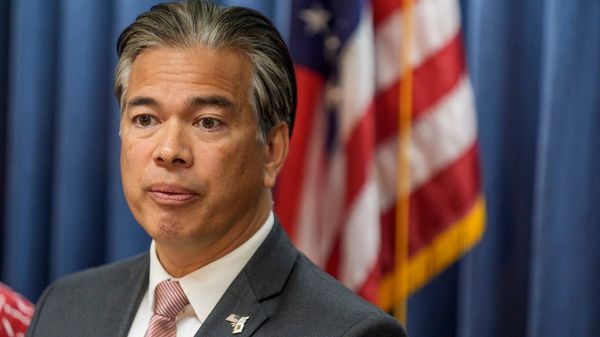February 6, 2013
Families First to Grant Domestic Partnerships to Florida Citizens
Steffany Skelley Gilmer READ TIME: 5 MIN.
LGBT citizens may soon find Florida to be a friendlier state, thanks to State Senator Eleanor Sobel (D). On January 9, Sobel filed a statewide bill appropriately nicknamed the "Families First" bill that would allow Florida citizens to enter into domestic partnerships.
State Bill 196, otherwise known as the Families First bill, would offer important legal protections to same-sex couples and would give them the same benefits married couples get, such as hospital visitation rights and the ability to make decisions regarding healthcare for a partner.
"Right now in Florida, LGBT couples or non-married couples have no legal relationship to each other. There is no way for them to be legally recognized," Mallory Wells, the Public Policy director of Equality Florida, told EDGE. "We've done a lot of really great work on the political level to pass domestic partnerships in cities and counties but that has not translated yet to the state level. Right now we've just got a patchwork policy, and that needs to change."
According to Equality Florida, Florida ranks fifth in the nation when it comes to domestic partnerships. There are nearly six million people living in communities that recognize domestic partnerships through registries or public employer benefits.
Although there is not yet any legal recognition for same-sex couples on a state level, Broward, Leon, Miami-Dade, Monroe, Orange, Palm Beach, Pinellas and Volusia Counties have already taken the necessary steps to offer some sort of legal recognition to domestic partners.
Likewise, the cities of Gainesville, Key West, Kissimmee, Miami Beach, Clearwater, Orlando, Sarasota, St. Cloud, St. Petersburg, Tampa and West Palm Beach have followed suit.
While the state has been taking small steps toward equality, the fight is nowhere near over.
"Domestic partnership law is a huge part of equality but in addition, Florida still needs to tackle this issue at a state level to ensure non-discrimination," urged Sarah Warbelow, the state legislative director of the Human Rights Campaign. "A number of municipalities have already stepped up. Equality Florida has really taken a leadership role and made sure cities are leading the way for the state. It's time for the state to see that these protections are beneficial."
Warbelow also reported that the Human Rights Campaign's polling has indicated that 80 percent of Americans consistently support non-discrimination rights for the LGBT community. Likewise, marriage equality support has broken past the 50 percent mark.
A June Public Policy Polling survey showed that Floridians are steadily increasing their support of marriage equality. It is also reported that 61 percent of Florida Democrats support LGBT marriage.
Freedom to Marry, who is leading the campaign to overturn DOMA and is also working across the country to educate the public and win marriage in more states, reports that nine states -- Connecticut, Iowa, Maine, Maryland, Massachusetts, New Hampshire, New York, Washington and Vermont plus Washington, D.C. -- have the freedom to marry for same-sex couples.
According to Freedom to Marry, Delaware, Hawaii, Illinois, New Jersey and Rhode Island currently allow same-sex civil unions. California, Oregon and Nevada offer a broad band of domestic partnerships while Colorado and Wisconsin have limited domestic partnerships. New Mexico and Rhode Island both recognize out-of-state marriages for same-sex couples.
Thanks to the tireless work of groups including Equality Florida, the Human Rights Campaign and Freedom to Marry, more than 42 percent of the U.S. population now live in a state that provides some sort of protection for LGBT couples.
"I think that equality is an American value," Wells said proudly. "We've seen over the last few years a big increase in the way America recognizes same-sex relationships and LGBT citizens culturally."
The American Psychological Association and the American Psychiatric Association agree with the majority of the U.S. when it comes to the importance of support for the LGBT community. In a 2007 brief they wrote that allowing same-sex couples to marry would provide both physical and psychological health benefits.
Currently, same-sex couples in long-term, committed relationships pay higher taxes and are denied basic rights and protections that straight married couples have, such as health insurance, Social Security benefits, pensions, estate taxes, immigration, family leave, nursing homes and home protection.
In addition, as the Human Rights Campaign website noted, "Many same-sex couples want the right to legally marry because they are in love -- many, in fact, have spent the last 10, 20 or 50 years with that person -- and they want to honor their relationship in the greatest way our society has to offer, by making a public commitment to stand together in good times and bad, through all the joys and challenges family life brings."
Allowing same-sex couples to marry would give them access to not only the basic rights mentioned above but would also ensure that partners are able to have full hospital visitation rights and are given the ability to make important healthcare decisions for their sick or dying partner.
"It's really vital that we protect all of America's families and create a means for individuals to ensure that the State is going to allow them to take care of their families," added Warbelow. "It's like the saying 'You don't need it until you really need it.' When do we need our families the most? We need them the most during the difficult times, especially for illness or bereavement."
While we still have a long way to go until we have full equal rights for all LGBT citizens, Senator Sobel's Families First bill would prove to be a step in the right direction if passed.
"Until the 2008 discriminatory constitutional amendment is overturned and Florida's gay couples are able to share in the freedom to marry, statewide domestic partnership would be a good step to provide important protections and responsibilities denied to those families because of the exclusion from marriage," Freedom to Marry's founder and president, Evan Wolfson, told EDGE.
"Domestic partnership is no substitute for marriage itself but some measure of protection and respect is better than none," he added. "The passage of the partnership bill would be a good way of getting Florida heading in the direction of fairness and respect for all families."







